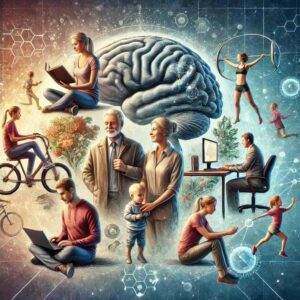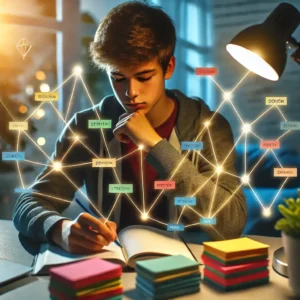Have you ever wondered how your brain decides what deserves your attention in a world full of distractions? 🌍 Whether it’s staying productive at work, engaging in meaningful conversations, or learning something new, your brain is constantly filtering out irrelevant details to prioritize what truly matters.
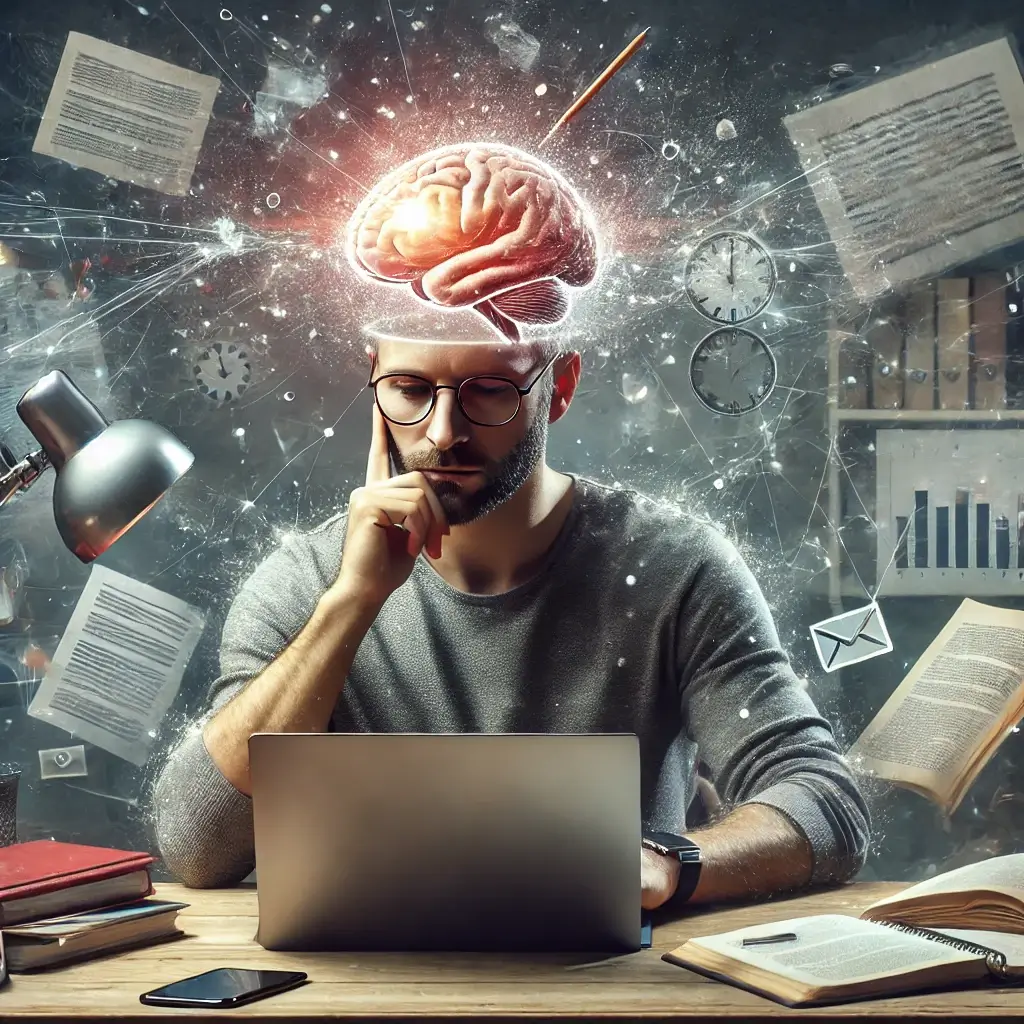
This ability, called Relevance Realization (RR), acts as a mental compass, helping you navigate life by spotlighting what’s valuable. Introduced by cognitive scientist John Vervaeke, RR explains how we sift through the noise to find meaning and focus.
When paired with Predictive Processing:—the brain’s way of learning from mistakes and refining its expectations—RR becomes even more powerful, enabling faster learning, better decision-making, and personal growth.
Understanding Relevance Realization can be transformative, whether you’re looking to boost productivity, make better decisions, or help your children focus on what matters. Let’s dive into how RR works, its benefits, and practical ways to improve it for long-term growth.
🎯 What Is Relevance Realization and Why Does It Work?
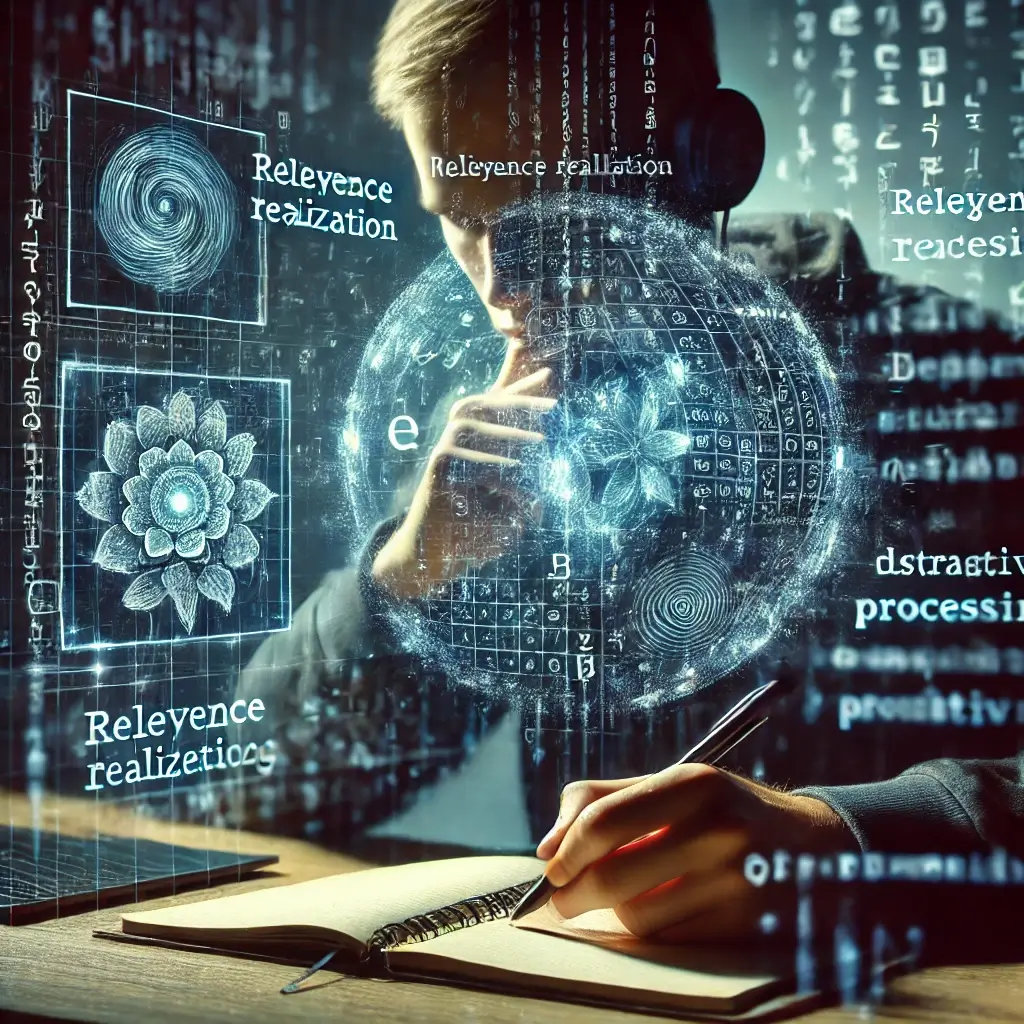
Relevance Realization is your brain’s ability to filter out unnecessary information and focus on what’s important. Without it, you’d be overwhelmed by the sheer volume of stimuli around you.
The Science Behind It
-
Relevance Realization (RR):
- Your brain actively filters and prioritizes the information most relevant to your goals and environment.
- Example: When learning a new language, your brain begins ignoring irrelevant sounds and focuses on key patterns, improving efficiency.
-
Predictive Processing (PP):
- PP helps your brain predict outcomes and refine its focus based on feedback. By integrating mistakes and successes, your brain adapts quickly to what matters.
-
The Combination of RR and PP:
- Together, RR and PP allow you to focus on essential details while continuously adjusting to new challenges, enhancing learning and decision-making.
🌍 How Relevance Realization Impacts Adults and Children
For Adults

-
Increased Productivity at Work 🖋️:
- By focusing on relevant details, you avoid distractions and complete tasks more efficiently.
- Example: While preparing a presentation, your brain filters out unnecessary research and highlights the key points to address your audience’s needs.
-
Skill-Building 🎸:
- RR ensures you prioritize the most critical aspects of a new skill, making practice more effective.
- Example: When learning to play an instrument, your brain hones in on rhythm and hand placement, ignoring less relevant elements like background noise.
-
Better Decision-Making ⚖️:
- RR helps you weigh options by identifying the most relevant information, leading to clearer and more confident choices.
For Children
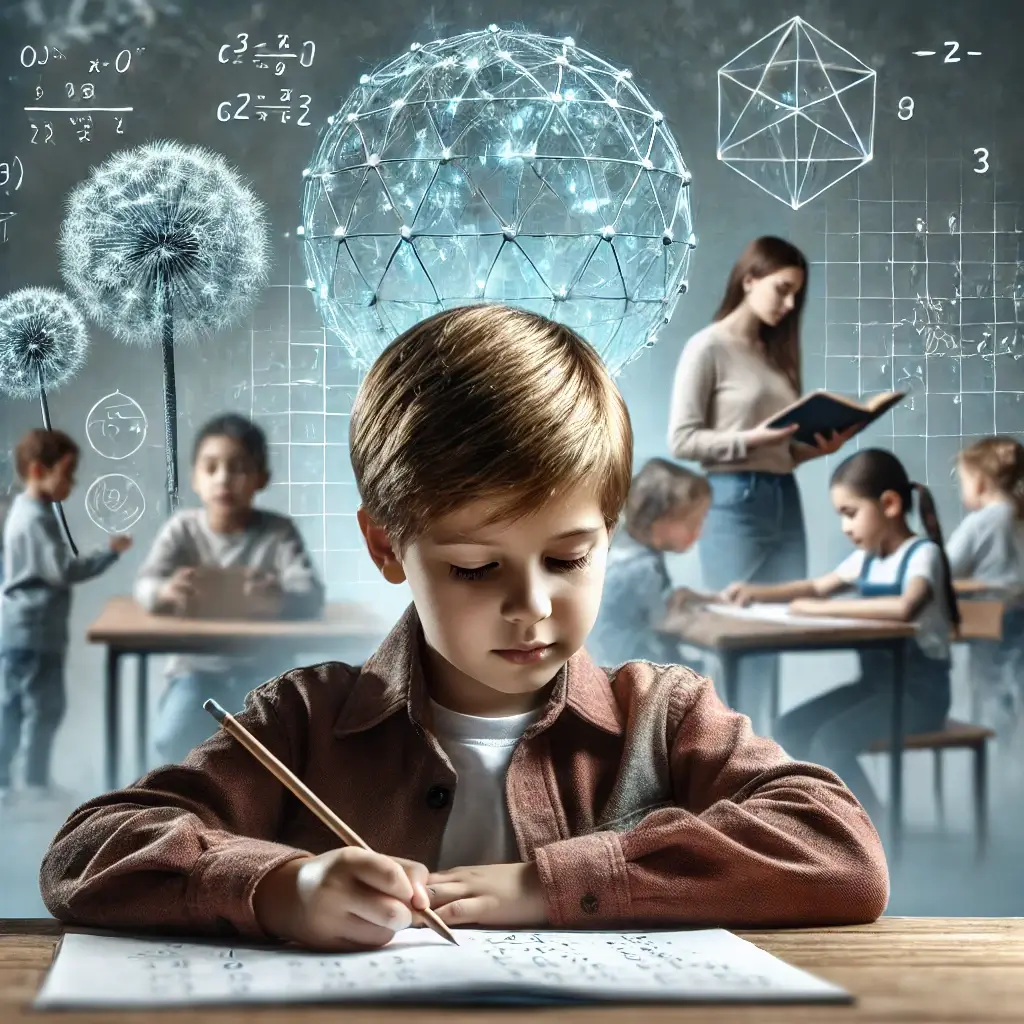
-
Faster Learning in School 📚:
- RR helps kids filter distractions, focusing on foundational concepts needed to understand a subject.
- Example: A child learning math starts by focusing on basic operations like addition and subtraction before moving on to complex equations.
-
Improved Social Interactions 👫:
- By recognizing which cues matter in social settings, children can navigate conversations more effectively.
- Example: A child learns to focus on tone of voice and facial expressions during conversations instead of overanalyzing every word.
-
Better Emotional Regulation 🌈:
- RR helps children understand which emotions and reactions are relevant in a situation, fostering self-control.
- Example: A child feeling overwhelmed by group activities can learn to focus on enjoying the game rather than worrying about performance.
🛠️ Best Ways to Improve Relevance Realization (RR)
Relevance Realization is not a fixed skill; it’s something you can continuously develop through intentional practices. Improving RR allows your brain to become more efficient at filtering distractions, prioritizing important information, and focusing on meaningful tasks. Here are some science-backed ways to sharpen your RR:
🌟 1. Practice Mindfulness and Meditation

Mindfulness helps train your brain to focus on the present moment and recognize what’s relevant in real-time.
- Why It Works: Meditation strengthens the prefrontal cortex, the part of the brain responsible for attention and decision-making.
- How to Start: Spend 5–10 minutes daily focusing on your breath or a specific sensation. Apps like Calm or Headspace can guide you.
🎯 2. Limit Multitasking

Constantly switching tasks weakens your ability to focus and makes it harder for your brain to identify what’s important.
- Why It Works: Single-tasking allows your brain to allocate resources to one activity, reinforcing its relevance.
🧩 3. Embrace Reflective Journaling

Writing down your thoughts helps your brain process experiences and identify patterns of relevance.
- Why It Works: Journaling encourages reflection, teaching your brain to prioritize meaningful details.
🌈 4. Explore New Environments and Experiences
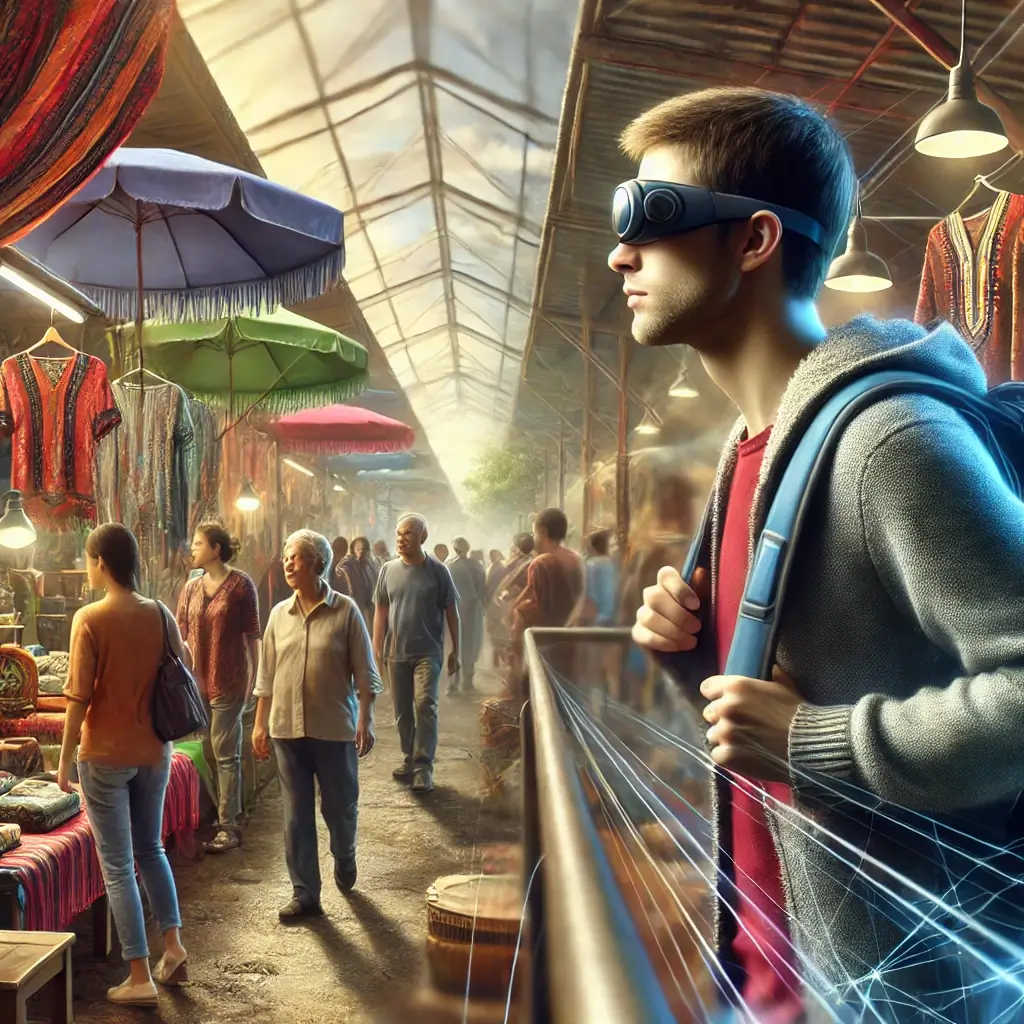
Novelty stimulates the brain and encourages it to focus on unfamiliar but important details.
- Why It Works: Exposure to new situations forces your brain to evaluate relevance in real-time, sharpening its ability to adapt.
🔄 5. Use Visualization Techniques

Visualization helps you mentally rehearse situations, training your brain to filter out distractions and focus on key objectives.
- Why It Works: Mentally simulating scenarios activates the same brain regions as actually performing the task, reinforcing relevance.
🔥 6. Build Stronger Feedback Loops

Actively seek feedback to improve your understanding of what’s working and what needs adjustment.
- Why It Works: Feedback helps your brain refine its focus by identifying which strategies are effective.
🌱 Why Gradual Progress Is Essential
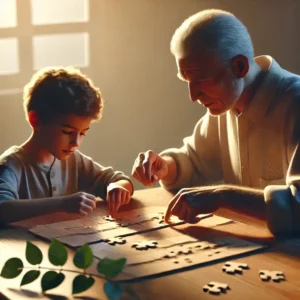
Relevance Realization improves over time as your brain adjusts to new experiences. Small, consistent efforts allow you to strengthen this skill without overwhelm.
- For Adults: Gradual practice sharpens focus and productivity.
- For Kids: Step-by-step guidance helps children build confidence and develop problem-solving skills.
✅ Do’s and Don’ts for Encouraging Relevance Realization

✅ Do: Break tasks into smaller, relevant parts to reduce overwhelm.
❌ Don’t: Overload yourself or your child with too much information.
✅ Do: Reflect on what worked to reinforce effective strategies.
❌ Don’t: Expect immediate results—building focus takes time.
✅ Do: Encourage exploration and curiosity to expand relevance detection.
❌ Don’t: Dismiss minor progress—it’s part of the learning journey.
🌟 Final Thoughts: Relevance Realization as a Tool for Growth

Relevance Realization is more than a brain function—it’s a transformative tool for navigating life’s complexities. By focusing on what truly matters, you can learn faster, make better decisions, and help your children thrive.
When paired with Predictive Processing, Relevance Realization helps you adapt to challenges while staying focused on meaningful goals. For adults and parents, understanding this process can unlock new levels of growth, confidence, and success.
Found this guide useful? Help others discover the Getting to Give Project by sharing it. Your support allows more people to access cutting-edge, science-backed resources at no cost. 🌟Thank you for reading!
📚 Further Reading:
John Vervaeke’s Research on Relevance Realization:
Relevance Realization and the Emerging Framework in Cognitive Science
In this paper, Vervaeke and colleagues discuss how cognitive agents determine the relevance of information, proposing a framework that integrates insights from various disciplines within cognitive science.
Predictive Processing and Relevance Realization:
Predictive Processing and Relevance Realization: Exploring Convergent Solutions to the Frame Problem
This article examines the intersection of predictive processing and relevance realization, highlighting how these frameworks collectively address the challenge of discerning pertinent information in complex environments.
AI and Relevance Realization:
Relevance Realization and the Neurodynamics and Neuroconnectivity of General Intelligence
Vervaeke and Ferraro explore how relevance realization processes can inform the development of autonomous agents, emphasizing the importance of self-organizing and plastic systems in artificial intelligence.














